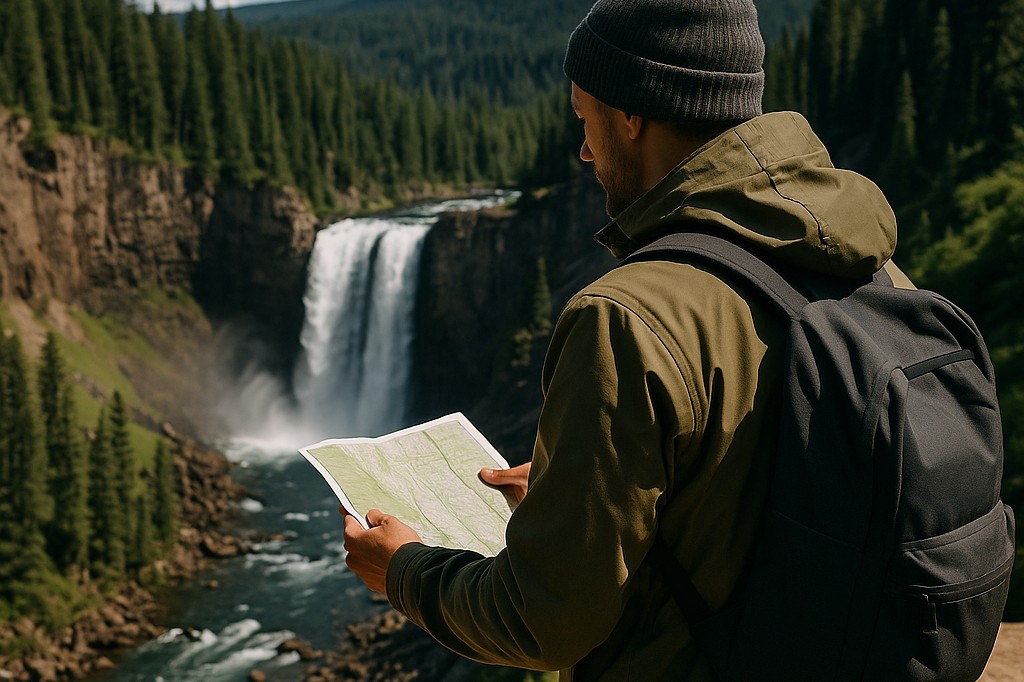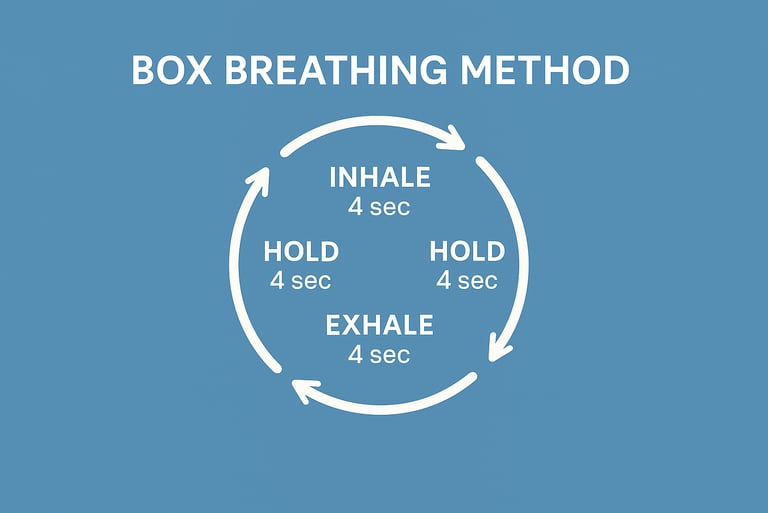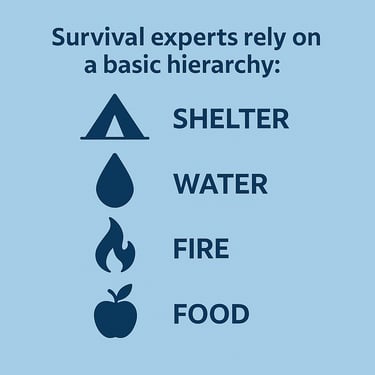Decision-Making Under Pressure: Sharpening Mental Clarity in Survival Situations
Learn how to stay calm and make smart decisions in survival situations. Discover practical techniques to improve mental clarity, avoid panic, and increase your chances of survival in the wild.


Decision-Making Under Pressure: Sharpening Mental Clarity in Survival Situations
Why Mental Clarity Is Crucial in the Wild
In survival situations, your brain becomes your most important tool. Whether you're lost, injured, or facing unexpected threats, your ability to think clearly will determine how well you respond. Fear and confusion are normal, but if you let them take over, they can lead to bad decisions that make things worse. The good news is that mental clarity can be trained, just like any other survival skill.
Understanding the Effects of Stress in Survival Scenarios
When you're in danger, your body reacts with adrenaline and a racing heart, it's part of the fight-or-flight response. While this can help in the moment, it also narrows your focus, speeds up your breathing, and makes logical thinking harder. That’s why experienced outdoorspeople sometimes still make mistakes under pressure.
Learning how to manage these moments is further covered in Mental Toughness for Wilderness Survival: Mastering the Psychology of Survival, which explores in more detail how mindset impacts your ability to stay focused when things go wrong. Recognizing the symptoms of stress is the first step to regaining control and making better decisions.
Breathing Techniques to Stay Calm and Focused
One of the fastest ways to calm your nervous system is through controlled breathing. Try the box breathing method: inhale for four seconds, hold for four, exhale for four, hold for four — and repeat. This simple tool slows your heart rate and signals your brain that it’s safe to think.
For more on this check out Mindfulness in Nature: How to Stay Present and Focused in the Wilderness, which can help you build long-term mental clarity through attention and presence. It only takes a minute or two but can completely change your mindset in high-stress situations.
How to Prioritize When Everything Feels Urgent
Panic makes everything feel important at once, but that’s a trap. Survival experts rely on a basic hierarchy: shelter, water, fire, food — in that order. Your first question should always be: what threatens my safety in the next hour? If it’s cold and wet, shelter comes first. If you’re in a desert, focus on finding water. This simple mindset helps reduce overwhelm and puts you in action mode.
Training Your Mind for Wilderness Decision-Making
Mental strength is just as trainable as physical skills. You can prepare by challenging yourself in controlled situations. Try navigating without GPS, building a fire quickly, or hiking unfamiliar terrain while staying calm. Afterward, take notes on what you did well and where you struggled. Over time, these small tests will build your confidence and improve your ability to think clearly under real pressure.
Avoiding Common Panic Traps
Panic can make even experienced hikers do irrational things like run, scream, or freeze in place. Look for early signs in yourself: shallow breathing, sweating, racing thoughts. Then ground yourself. Say out loud what you see, where you are, and what you need to do next. This helps snap your brain out of panic and back into problem-solving mode. The more you practice this, the faster it becomes second nature.
For More on recognizing the early signs of emotional overwhelm, check out Mental Fatigue in Survival Scenarios: Recognizing Warning Signs and Coping Tools, a useful guide to staying functional under prolonged stress.
Staying Mentally Sharp Over Time
In long-term survival situations, exhaustion, hunger, and fear will start to wear you down. To protect your decision-making ability, stick to simple routines: drink water regularly, eat small amounts when you can, and rest whenever it’s safe. These small habits help maintain mental clarity and keep you from making avoidable mistakes due to fatigue or low energy.
Final Thoughts: Train Your Mind Before You Need It
In the end, your most valuable survival gear is your mindset. By understanding how your brain reacts under stress and building mental habits for calm and focus, you’ll be better prepared for the unexpected. Clarity under pressure doesn’t just help you survive — it helps you make decisions that keep you safe, confident, and in control.




© 2025. All rights reserved About | Privacy Policy | Terms and Conditions | Affiliate Disclosure | Disclaimer


